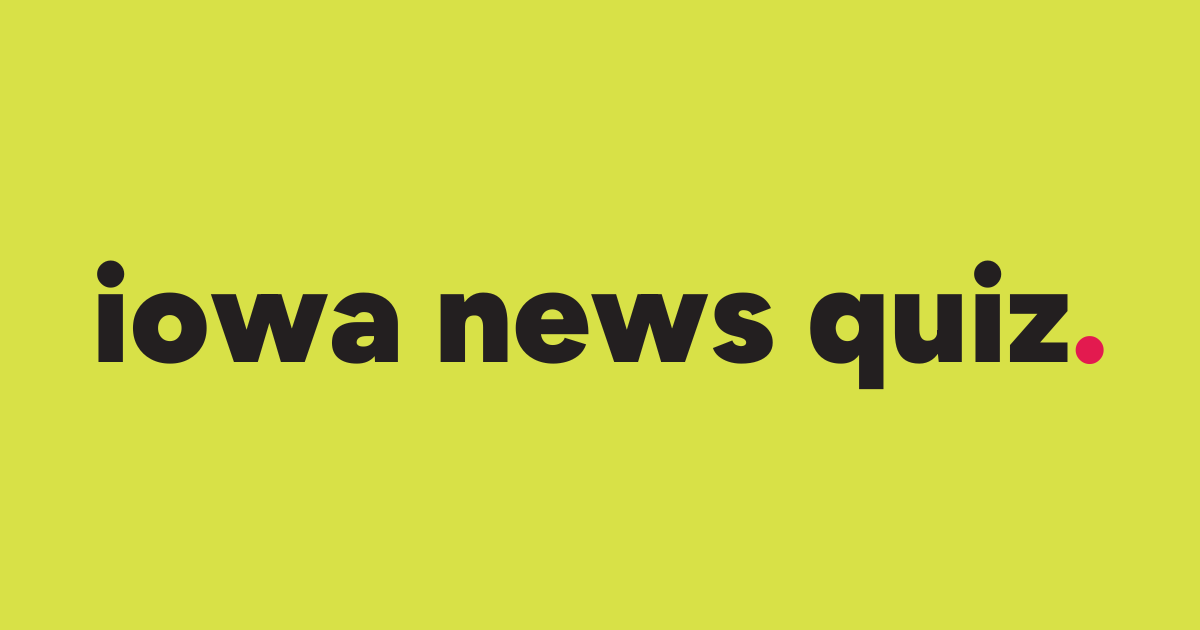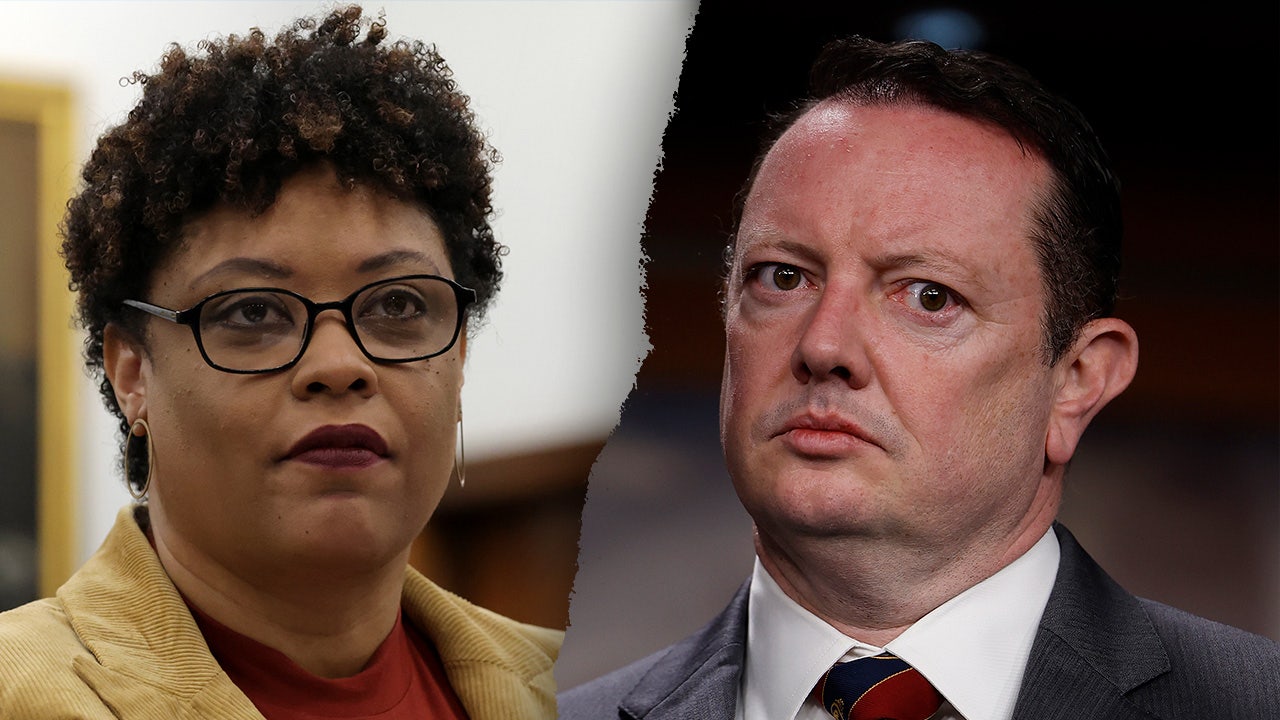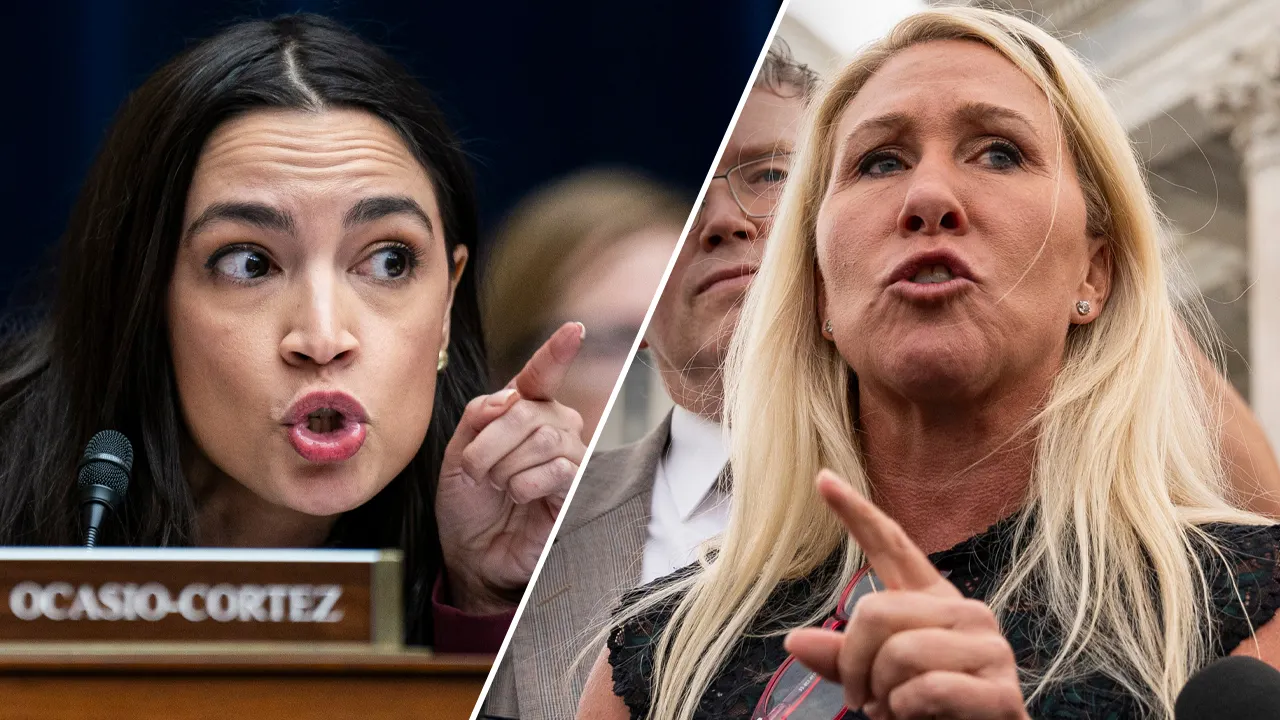New York
A Royal Paradox: Harry and Meghan Seek Both Privacy and Publicity

When Prince Harry and his wife Meghan decamped Britain for the United States in 2020, he portrayed it as an act of survival against a relentlessly intrusive British press. On Tuesday, after a chaotic encounter with photographers in New York City, Harry found the media glare can be just as intense in his adopted home.
With details continuing to filter out about what exactly happened to Harry, Meghan and her mother, Doria Ragland, as photographers pursued them in Midtown Manhattan, the episode underscored a basic paradox in the lives of this celebrity couple: they plead for privacy, but also seek publicity, with a Netflix documentary, a tell-all memoir by Harry and public appearances that will inevitably draw cameras.
The frenzy in New York is a reminder of the grievances that Harry has held for decades against the British press, which remains the primary market for paparazzi shots of him and Meghan. In 1997, his mother, Princess Diana, died in a car crash in Paris while fleeing photographers; Harry has blamed them for her death and expressed fears that history could repeat itself with his wife and family.
But the episode also illustrates a dilemma for Harry: Even the involvement of the New York Police Department did not spare his family being swarmed by paparazzi, who pursued them even after they took refuge in a police station.
The role of the police in Tuesday’s incident is drawing attention in London because Harry has filed a legal challenge against Britain’s Home Office, after it rejected his request for the Metropolitan Police to provide protection to him and his family when they visit Britain.
“The example of what happened in New York suggests that the kind of police protection Harry wants in London is not going to be enough to protect him or his family,” said Ed Owens, a historian who has studied relations between the monarchy and the media. “He’s not engaging with this reality.”
In California, where they now live, Harry and Meghan employ private security guards who are licensed to carry guns. But they are not allowed to travel with armed guards in Britain, which is one reason Harry has asked for police protection, and has offered to pay for it himself. Lawyers for the Home Office argued in court that police officers should not be hired out to paying customers.
Harry has described the loss of his security detail as one of the most worrisome consequences of his bitter split from his family and his withdrawal from royal duties. In his memoir, “Spare,” he wrote that from childhood, he had never traveled without three armed bodyguards. During negotiations with palace officials over his new status, Harry said, he begged for the bodyguards to be left in place, even if he lost all the other royal perks.
“I offered to defray the cost of security out of my own pocket,” he wrote. “I wasn’t sure how I’d do that, but I’d find a way.”
The burden of paying for round-the-clock security, say people who know the couple, is one of the reasons Harry and Meghan have struck lucrative publishing and programming deals with Netflix and Penguin Random House.
In a statement on Wednesday, the couple’s spokeswoman suggested that the threat posed by the photographers was as much to pedestrians, other motorists, and police officers as to the couple or Ms. Ragland. It described “a near catastrophic car chase at the hands of a ring of highly aggressive paparazzi.”
That is more dramatic than the account given by the New York police as well as the taxi driver who picked up the couple and Ms. Ragland.
The driver, Sukhcharn Singh, said he would not characterize it as a chase and added that he was not afraid, though his passengers clearly were. A police spokesman acknowledged that the photographers posed a challenge, but said the three arrived at their destination on the Upper East Side without “reported collisions, summonses, injuries, or arrests.”
The New York Police Department declined to comment on security deployment for high-profile visitors to the city. But an official with knowledge of the process said the police do their own independent research and analysis of such visits, before deciding whether to provide additional security.
News coverage of the encounter, which was extravagant on both sides of the Atlantic, pointed out the discrepancies in the accounts of the episode. But on this occasion, the New York tabloids made more of it than their London counterparts, which ran front-page photos of the couple but not judgmental headlines.
The New York Post’s front-page banner said “Duke (and Duchess) of Hazard,” while The Daily News said, “Scary Echo of Diana.”
Harry has lawsuits pending against the publishers of three London tabloids, The Daily Mail, The Daily Mirror, and The Sun, which he accuses of invading his privacy by hacking his cellphone and other illicit methods. Meghan won a case against the publisher of the Mail on Sunday for publishing a private letter she sent to her estranged father, Thomas Markle, at the time of her wedding.
In one of Harry’s cases, against Rupert Murdoch’s British newspaper group, Harry said the company paid a “huge sum of money” in 2020 to settle claims that its journalists hacked the cellphone of his older brother, Prince William. The company and Kensington Palace, William’s office, declined to comment.
The evidence of systematic hacking of the phones of celebrities, royals and others led to the Leveson Inquiry, a judicial inquest that resulted in publishers ending the practice of phone hacking. They also curbed the aggressiveness of photographers who follow celebrities and members of the royal family.
While paparazzi have shown a degree of restraint since being publicly shamed in Britain, they still have a fairly free hand in the United States, where they have faced less of a backlash against their methods.
Mr. Owens, the historian, said the British press accepted these measures because they worried that if they did not, the government would impose compulsory curbs. For the royal family, that set off a period of relative calm with the press that only ended when Harry began dating an American actress named Meghan Markle.
“The royal family’s lives should have gotten easier in the U.K,” after press coverage calmed, Mr. Owens said. “At the same time, the toxicity of the relationship between the royal family and the media has continued. There has been both a softening of the press’s approach and a more aggressive approach by the family to how they are covered.”
In the Netflix documentary, “Harry & Meghan,” the couple are depicted peering nervously out the windows of their S.U.V. for photographers pursuing them, as they leave a parking garage and head to an event. The scene is set in Manhattan.
Maria Cramer contributed reporting from New York

New York
Transcript of Trump Manhattan Trial, May 14, 2024

Proceedings
SUPREME COURT
CRIMINAL TERM
NEW YORK COUNTY
PART 59
THE PEOPLE OF THE STATE OF NEW YORK
-against
DONALD J. TRUMP,
Defendant.
:
3503
INDICTMENT #
71543/2023
Falsifying Business
Records First Degree
BEFORE:
100 Centre Street
New York, New York 10013
May 14, 2024
HONORABLE JUAN M. MERCHAN,
JUSTICE OF THE SUPREME COURT
APPEARANCES:
FOR THE PEOPLE:
ALVIN L. BRAGG, JR., ESQ.
New York County District Attorney
BY: JOSHUA STEINGLASS, ESQ.,
MATTHEW COLANGELO, ESQ.,
SUSAN HOFFINGER, ESQ.,
CHRISTOPHER CONROY, ESQ.,
REBECCA MANGOLD,
ESQ.,
KATHERINE ELLIS, ESQ.,
Assistant District Attorneys
FOR THE DEFENDANT:
BLANCHE LAW
BY: TODD BLANCHE, ESQ.
EMIL BOVE, ESQ.
KENDRA WHARTON, ESQ.
STEPHEN WEISS, ESQ.
NECHELES LAW, LLP
BY: SUSAN NECHELES, ESQ.
GEDALIA STERN, ESQ.
SUSAN PEARCE-BATES
Principal Court Reporter
LAURIE EISENBERG, RPR, CSR
LISA KRAMSKY
THERESA MAGNICCARI
Senior Court Reporters
Lisa Kramsky,
Senior Court Reporter
New York
Transcript of Trump Manhattan Trial, May 13, 2024

M. Cohen Direct/Hoffinger
3277
1
was there at The Trump Organization about executives coming in
2
to meet with Mr. Trump?
3
A
Mr.
Trump had an open-door policy, which, if there was
4
5
6
somebody in there, you waited; and if not, you knocked on the
door, and I would say, “Boss, do you have a second?”, and I
would walk right in.
7
Q
And others did the same, to your knowledge?
8
A
9
To my knowledge, yes.
Now, when you met with Mr. Trump at The Trump
Organization, in his office, did you, generally, need
10
–
I’m
11
sorry.
12
Did you, generally, record those meetings in your calendar?
13
A
No, ma’am.
14
15
16
As part of your work at The Trump Organization, did
you feel that it was part of your job to keep him updated on
matters that you were handling for him?
17
A
Yes.
It was actually required.
18
19
20
21
22
23
A
Tell us what you mean by that.
When he would task you with something, he would then
say, “Keep me informed. Let me know what’s going on.”
And what he was saying, what everybody did is, as soon as
you had a result, an answer, you would go straight back and
tell him. Especially if it was a matter that was troubling to
24
him.
25
So, two things, just to break that down.
Laurie Eisenberg, CSR, RPR
Senior Court Reporter
New York
Video: Michael Cohen Says Trump Discussed Reimbursement in Oval Office

Michael Cohen’s story of a hush-money arrangement struck in the White House was the only personal account tying Donald J. Trump to falsified documents. Jonah Bromwich, a criminal justice reporter at The New York Times, gives his takeaways.
-

 Politics1 week ago
Politics1 week ago'You need to stop': Gov. Noem lashes out during heated interview over book anecdote about killing dog
-

 Politics1 week ago
Politics1 week agoRFK Jr said a worm ate part of his brain and died in his head
-

 World1 week ago
World1 week agoPentagon chief confirms US pause on weapons shipment to Israel
-

 World1 week ago
World1 week agoConvicted MEP's expense claims must be published: EU court
-

 Politics1 week ago
Politics1 week agoCalifornia Gov Gavin Newsom roasted over video promoting state's ‘record’ tourism: ‘Smoke and mirrors’
-

 News1 week ago
News1 week agoStudents and civil rights groups blast police response to campus protests
-

 Politics1 week ago
Politics1 week agoOhio AG defends letter warning 'woke' masked anti-Israel protesters they face prison time: 'We have a society'
-

 Politics1 week ago
Politics1 week agoBiden’s decision to pull Israel weapons shipment kept quiet until after Holocaust remembrance address: report















